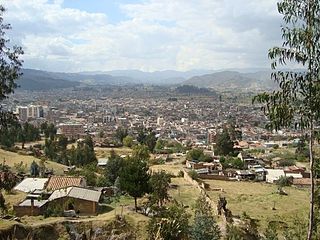
González or Gonzalez, is a Spanish surname. In Spain, González is the second most common surname with 2.08% of the population having this surname. González is also a common surname in Latin America. It is one of the five most common surnames in Argentina, Chile, Mexico, Paraguay, and Venezuela, making it one of the most common surnames in the Spanish-speaking world. In the United States, González ranked as the 13th most common surname in 2017.
Gutiérrez is a Spanish surname meaning "son of Gutierre". Gutierre is a form of Gualtierre, Spanish form of Walter. Gutiérrez is the Spanish form of the English surnames Walters, Watkins, and Watson.
Jiménez is a surname of Iberian origin, first appearing in the Basque lands. Jiménez is a patronymic construction from the modern-styled given name Jimeno, plus the Spanish suffix -ez, meaning "son [of]". The root appears to stem from Basque semen ('son'), attested in the Aquitanian inscriptions as Sembeconnis and like forms. Variants of the surname include the archaic Ximénez, Ximenes, as well as Giménez, Gimenes, Jimenes, Chiménez, Chimenes, Seménez, Semenes and the Sicilian Scimemi or Scimeni.

The 1966 Tour de France was the 53rd edition of the Tour de France, one of cycling's Grand Tours. It took place between 21 June and 14 July, with 22 stages covering a distance of 4,329 km (2,690 mi).
Carla is the feminized version of Carl, Carlos or Charles, from ceorl in Old English, which means "free man". Notable people with the name include:

Sogamoso is a city in the department of Boyacá of Colombia. It is the capital of the Sugamuxi Province, named after the original Sugamuxi. Sogamoso is nicknamed "City of the Sun", based on the original Muisca tradition of pilgrimage and adoring their Sun god Sué at the Sun Temple. The city is located at an altitude of 2,569 metres (8,428 ft) on the Altiplano Cundiboyacense in the Eastern Ranges of the Colombian Andes.

The 1967 Tour de France was the 54th edition of the Tour de France, one of cycling's Grand Tours. It took place between 29 June and 23 July, with 22 stages covering a distance of 4,779 km (2,970 mi). Thirteen national teams of ten riders competed, with three French teams, two Belgian, two Italian, two Spanish, one each from Germany, United Kingdom and the Netherlands, and a Swiss/Luxembourgian team.
Bernal is a Spanish form of Bernard, and may refer to:

Julio Jiménez Muñoz is a Spanish former professional road racing cyclist. Known as a climbing specialist, he captured six King of the Mountains jerseys at the Grand Tours. Stage 20 of the 1964 Tour de France was one of the most famous stages in TDF history due the battle up the Puy de Dome between Anquetil and Poulidor. This stage was won by Jimenez, who was able to cross the line 0:11 ahead of Spanish climber Federico Bahamontes, 0:57 ahead of Poulidor, 1:30 ahead of Vittorio Adorni and 1:39 ahead of Anquetil. In 1965, he became one of (now) four riders to complete the Tour/Vuelta double by winning both Tour's mountains competition in the same year.
Julio Jiménez is a Colombian writer of telenovelas for RTI Colombia.
Rangel is a Spanish and Portuguese surname.

The mountains classification in the Vuelta a España is a secondary classification in the Vuelta a España. For this classification, points are given to the cyclists who cross the mountain peaks first. The classification was established in 1935, when it was won by Italian Edoardo Molinar, and until 2005 the leader in the mountain classification wore a green jersey. In 2006, it became an orange jersey, and in 2010 it became white with blue dots.
Moreno is a Spanish, and Portuguese surname. It may refer to:
Events in the year 1917 in Portugal.
Lozano is a surname of Italian-Swiss origins. Notable people with the surname include:
Herrera is a surname of Spanish origin, from the Latin FERRĀRIA, meaning "iron mine" or "iron works" and also the feminine of Latin FERRĀRIUS, "of or pertaining to iron"; or, alternatively, the feminine of Spanish herrero, which also gives the surname Herrero. Variants of the name include Ferrera and the less common Bherrera. Its equivalent in Portuguese and Galician is Ferreira. Also because of Spanish naming customs, some people are listed here with their family name as their second-to-last name.
Julio Rodríguez or Julio César Rodríguez may refer to:
Events in the year 2020 in Spain.
This page is based on this
Wikipedia article Text is available under the
CC BY-SA 4.0 license; additional terms may apply.
Images, videos and audio are available under their respective licenses.





